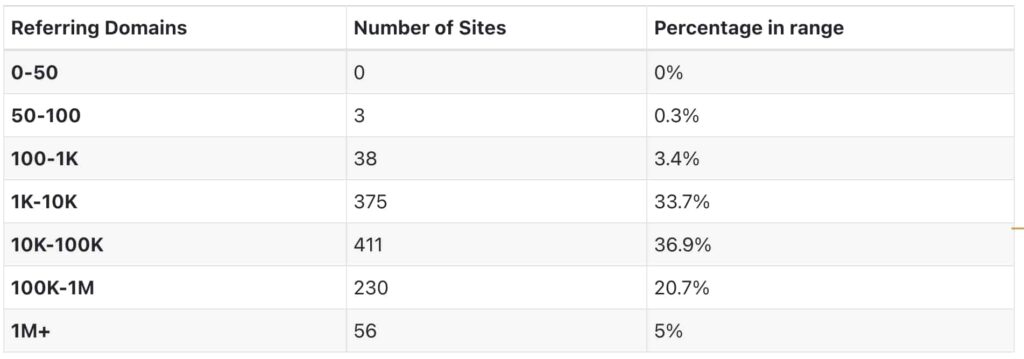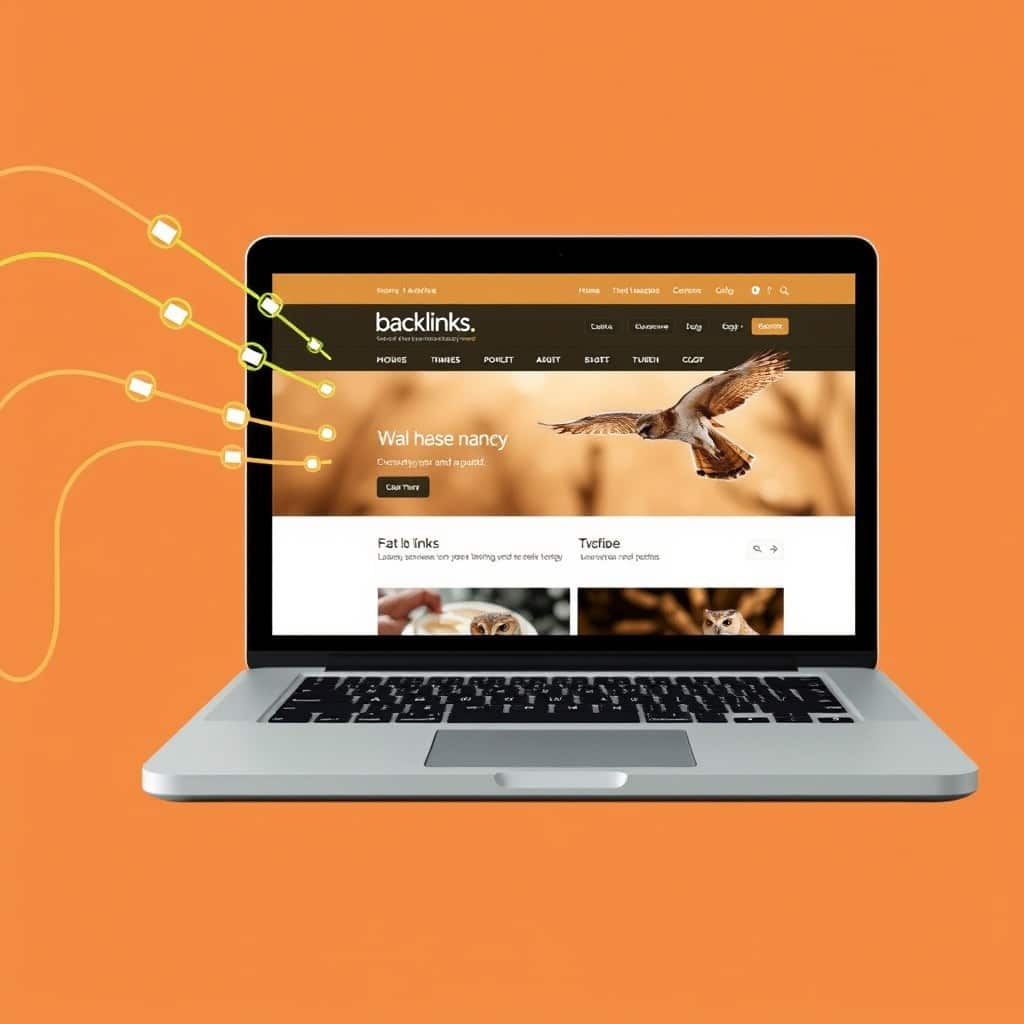
Over 96% of websites ranking in the top 10 in Google in a recent study had more than 1,000 backlinks from unique domains. It’s clear that websites ranking well tend to have more backlinks. But it’s also true that webpages that rank well tend to attract more backlinks – because they rank so well.
A new analysis published on Jun 6 2024* found that very few sites ranked in the top 10 without at least 1,000 links from unique domains. But how many links do your really need, and does the quality of those links matter? This table shows the percentage of top 10 ranking sites and the corresponding number of referring domains:


Identifying trustworthy links
It’s important to understand that some links are worth far more than others. For example, a link from an industry association site could be worth as much as 100 other links. The key is the “authority score” of the linking site, a measure of how trusted the site is within its community. Context also plays a role; if your site is about construction, an inbound link from a construction-related website will carry more weight.
Most popular SEO software can assess different domains and provide an authority score. This score ranges from zero for a brand-new site to 99 for major, independent portals. Newspapers often have scores between 40-80, making press releases a valuable strategy. On the other hand, independent companies rarely score higher than 30, particularly in New Zealand.
It used to be common practice to submit to a lot of directories, but these are typically lower in value today. Google now prefers fresh links from new pages, and a sudden burst of links can indicate that a page is particularly topical.
This shift is why creating great content and cross-linking internally has become so popular. Great content earns backlinks, especially if it’s widely shared and discovered. For example, conducting a study, publishing it, and sharing it can generate organic backlinks. Another strategy involves leveraging independent writers who can publish content on trusted sites.
However, Google’s recent algorithm update has aimed to reduce the value of “paid” or “sponsored” links. It’s more important than ever to focus on natural, high-quality backlinks.
Some sites are so poor that they carry a high “toxicity” score. A good SEO company can identify these and regularly submit a list to Google to disavow them, essentially telling Google, “We didn’t create this link, please don’t count it.”
SEO tools also allow you to review your competitor’s backlinks, giving you insights into what works and what doesn’t.
Gone are the days when you could pay for a large number of low-quality links to boost your rankings. Google now favours a natural spread of links, with a mix of very high-trust links and a broader base of lower-quality ones. This approach rewards sites that focus on producing high-quality content, such as blogs, videos, and podcasts, that resonate with their audience’s pain points and needs. But it takes effort and time to find these, get links, and produce the content. That’s where an SEO agency can really add value.
If you’re curious about your website’s trust score or want to review your link-building strategy, get in touch with Rachel at Alexanders Digital Marketing. We can put your site through our SEO software and help you craft a content and link strategy that boosts your rankings.
Or you can get a free, instant website SEO score report delivered straight to your inbox from our nifty seo audit tool.
Your content strategy should have a solid relationship with your keyword strategy, with articles, videos and images supporting internal links with a pillar and post strategy. Alexanders offers Content Strategy and Social Media Strategy coaching that develops a robust plan for insightful content, that at the same time supports your keyword strategy to build and maintain position. These services are also registered with MBIE and eligible companies can apply for co-funding. Get in touch with Rachel to find out more.
*Source: Marketing Ninjas